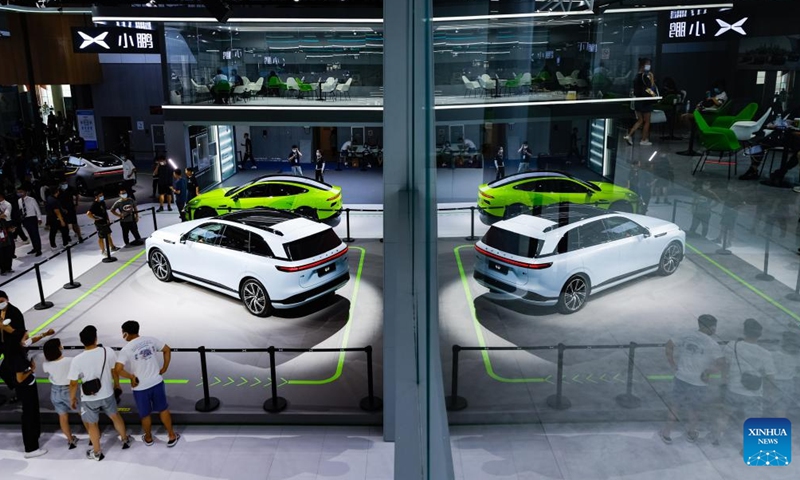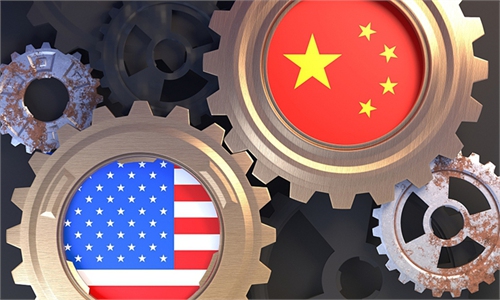
Visitors view a Buick car from SAIC-GM, a joint venture between Shanghai-based SAIC Motor and General Motors, at the Chengdu Motor Show 2022 in Chengdu, capital of southwest China's Sichuan Province, Aug. 26, 2022. Photo:Xinhua
There is no change to General Motors (GM)'s partnership with Chinese automaker SAIC and its commitment to driving long-term growth for GM's joint ventures (JVs) in China, GM China told the Global Times on Wednesday, responding to media reports claiming that it is cutting jobs in the world's biggest car market.Bloomberg reported on Tuesday that GM is cutting staff in China-related departments, including research and development, while it will soon meet with local partner SAIC to plan a larger structural overhaul of its operations in China, citing sources.
"We will continue to provide our best products and technology to Chinese consumers with a portfolio planned well ahead for the future. As GM CFO Paul Jacobson said last week at an investor conference, 'China can be a good asset for us and remains a good asset for us,'" the company said.
To achieve this long-term goal, GM is working closer than ever with our joint venture partner SAIC to restructure the business in China to make it profitable and sustainable, it continued.
According to data released by GM, the company and its JVs delivered about 814,000 vehicles in China in the first half of 2024. Over this period, sales of new energy vehicles, which include both pure battery electric vehicles and plug-in hybrids, reached 271,000, or accounting for around 33 percent of the company's total sales.
Auto manufacturing is global industry, and it is not the first for global automotive giants like GM to experience fierce competition seen currently in the China market, Zhou Mi, a senior research fellow from the Chinese Academy of International Trade and Economic Cooperation, told the Global Times on Wednesday.
Zhou said foreign auto manufacturers have no reasons to forgo opportunities in China if they are willing to enhance their own competitiveness through a variety of methods.
"As the world's largest automobile market, China has not only strong consumption potential but a complete automobile industrial chain to support the development of the automobile industry," Zhou said. As a result, China can provide foreign automakers with more opportunities and help reduce their costs, he said.
Amid fierce competition, many auto multinationals have been stepping up efforts to grow their global market share, especially in the China market, over recent years.
US carmaker Tesla in late May broke ground on a mega factory in Shanghai to manufacture its energy-storage batteries, Megapacks, a project hailed by the company as a "milestone."
The plant is expected to enter mass production in the first quarter of 2025.
In April, German carmaker BMW announced an additional investment of 20 billion yuan ($2.8 billion) in its production base in Shenyang, capital of Northeast China's Liaoning Province, a move that underlines not only the carmaker's confidence in China's long-term economic prospects, but also in the innovation capabilities of its Chinese partners.



